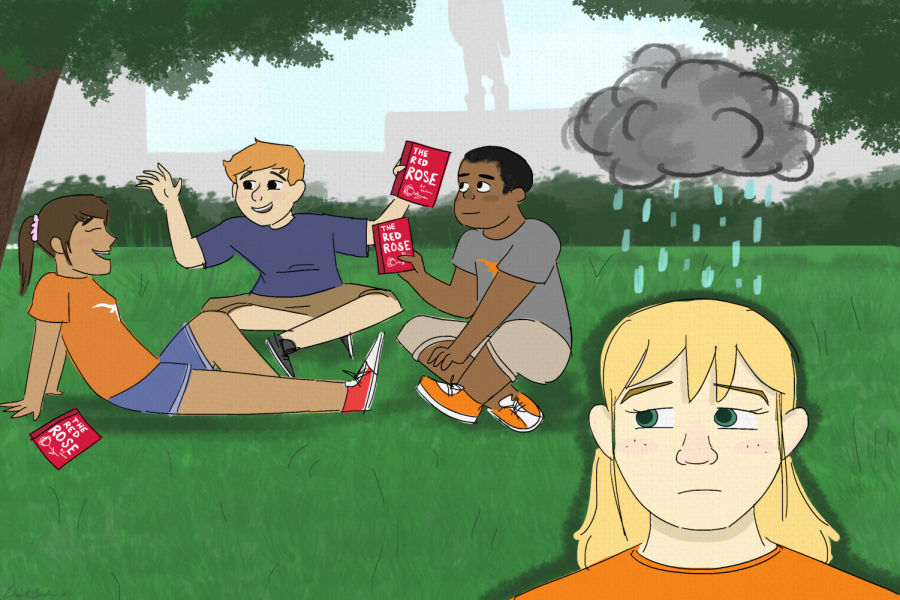Expand Reading Round-Up
June 22, 2023
It’s easy to forget why reading was ever fun. Stressful lectures and brain-melting assignments make it hard to muster up the energy for a book. And as summer break trudges by, students can lose touch with their academic endeavors — a gap that University-promoted activities can fill.
Reading Round-Up is a program where first-year students, including incoming freshmen and transfers, can participate in a faculty-led small-group discussion for a book of their choosing from a proposed reading list. The School of Undergraduate Studies should expand the initiative to include all undergraduates — not just freshmen and transfers.
“The idea with Reading Round-Up is that it encourages students who are new to campus to engage with professors and have a college-level discussion of books of their choosing before they actually jump into classes,” said Madeline Penn, First-Year Experience Program Coordinator at the School of Undergraduate Studies. “It establishes connections between a small group of students and some of the best teaching faculty on campus.”
Structuring Reading Round-Up to give incoming freshmen and transfer students a preview of college classes in an environment with equally inexperienced peers makes sense. However, the decision to separate new students should not mean a complete exclusion of other grade levels from the program.
Gavin Harris, a Plan II and international relations global studies sophomore, said that the prospect of building community influenced his decision to participate in Reading Round-Up as a freshman.
“I love reading. I love discussing my books,” Harris said. “I’m actually out of state, so I hadn’t had as much knowledge about UT. I just wanted … to meet people that like similar things that I did and could express those ideas.”
Harris concluded that he would consider participating again if given a choice. However, since Reading Round-Up specifically aims to make the college transition easier for new students, any expansion should still separate freshmen and transfers from everyone else.
Reading Round-Up, hosted in multiple buildings, exposes newcomers to the campus layout, giving them the opportunity to explore before the first day of class.
Penn said an issue that coordinators could experience with expansion is a lack of resources. Some of the perks of Reading Round-Up include ice cream and t-shirts designed by local artists. But the merchandise could be exclusive to first-years, and if the continuing-student Reading Round-Up were to be hosted on a different date, it would alleviate any sense of material inequality among grade levels.
What makes Reading Round-Up worth participating in isn’t the prospect of a free t-shirt: it’s the access to faculty and students who seek reading opportunities even when it’s not required of them.
Of course, there is not an infinite supply of faculty willing to lead the event.
“Because of our new academic calendar this year…a lot of faculty were feeling very rushed at the end of the semester. It was a harder ask this year,” Penn said. “But even while there was so much pressure on the faculty, they still came for this. It’s an event that they seem to look forward to.”
Despite a condensed calendar and subsequently bustling schedules at the end of last spring, the program still got more staff engagement than its initial goal — approximately 60 faculty volunteers despite its initial goal of 55, according to Penn.
If the program could spare just a few faculty members, non-freshman Round-Up could be modeled after larger lectures as opposed to the traditionally more intimate feel of the program. Through this, more students can enjoy the program without compromising its initial goal.
As an academic institution, the University should foster and promote students’ engagement with literature whenever possible. Books are for everybody, and Reading Round-Up should be too.
Hosseini is a humanities honors sophomore from Sugar Land, Texas.











